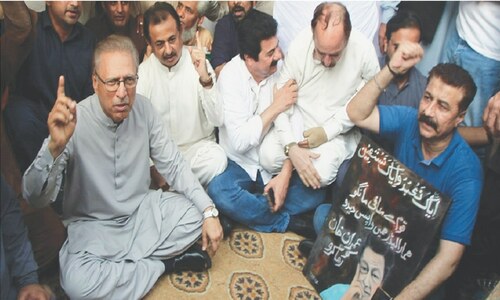ISLAMABAD: The Central Power Purchase Agency (CPPA) requested the National Electric Power Regulatory Authority (Nepra) on Monday to reduce electricity charges for a month by Rs3.2 per unit in view of decline in international prices of fuel and extensive loadshedding in December.
Nepra has admitted the request for formal hearing. The reduction, if approved, will be applicable to all distribution companies except K-Electric. The relief will be given to consumers in the billing month of February.
The CPPA said Nepra had approved reference fuel tariff of about Rs9.53 per unit last year when furnace oil price stood at Rs75,000 per ton. The price has since come down to a little over Rs40,000. As a result, the actual fuel cost has declined to Rs6.32 per unit, requiring a reduction of Rs3.2 per unit.
On top of that, the power sector’s reliance on furnace oil dropped significantly because of limited supplies in the wake of the Pakistan State Oil’s inability to import fuel as banks cancelled credit lines due to huge receivables.
Therefore, the water and power ministry followed the policy of increasing loadshedding. As a consequence, many power plants remained idle and the monthly fuel price component of the tariff declined considerably.
The CPPA said the diesel-based cost stood at Rs19 per unit, furnace oil-based cost at Rs12.38, gas-based cost at Rs3.57, nuclear energy-based cost at Rs1.18 and electricity imported from Iran cost Rs10.2, resulting in a saving of Rs20 billion during December.
Nepra had approved Rs2.97 per unit reduction in the fuel price adjustment for November, but the government had imposed an equalisation surcharge of 60 paisa per unit and passed on to consumers relief of only Rs2.36 per unit.
Taking benefit of the decline in oil prices over the past few months, the government has been retaining a part of the difference through equalisation surcharges of up to Rs2.4 per unit along with additional system losses in the consumer tariff. The steps having an estimated financial impact of about Rs75bn have been taken to deliver on commitments made to the International Monetary Fund.
The government also directed Nepra last week to include in the charges more than Rs55bn on account of the Azad Jammu and Kashmir special tariff as compensation for raising of the Mangla dam, three per cent additional losses and debt servicing.
Last year, the government had asked Nepra to allow 18pc system losses, instead of 13.5pc, in consumer tariff, having a financial impact of about Rs30bn a year. But the regulator declined to oblige, saying it could not overturn its own determinations made after a proper process of public hearings unless any fresh information or data was brought up for consideration. One per cent system losses work out to about Rs6bn.
Nepra said its own rules and laws as well as the Supreme Court’s decisions did not allow passing on to consumers the imprudent costs of electricity caused by continuous failure of the power companies and the government to overcome inefficiencies.
Published in Dawn, January 27th, 2015
On a mobile phone? Get the Dawn Mobile App: Apple Store | Google Play












































